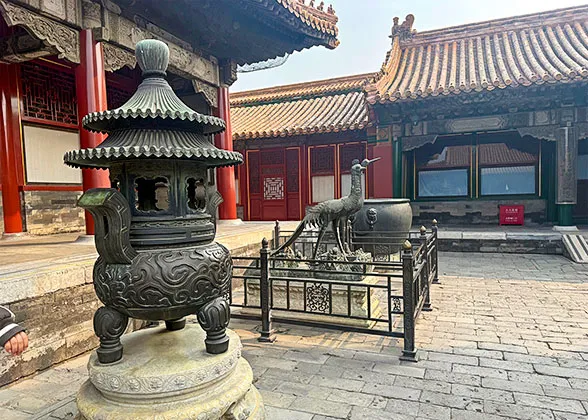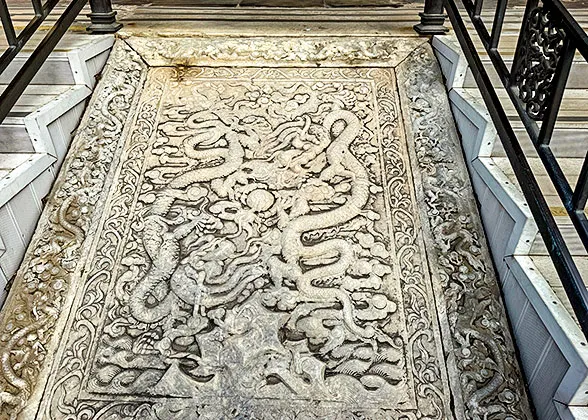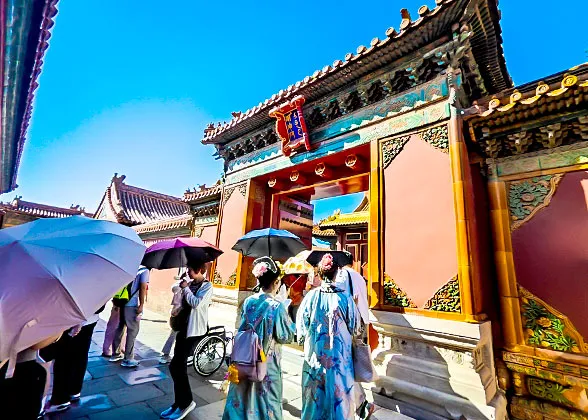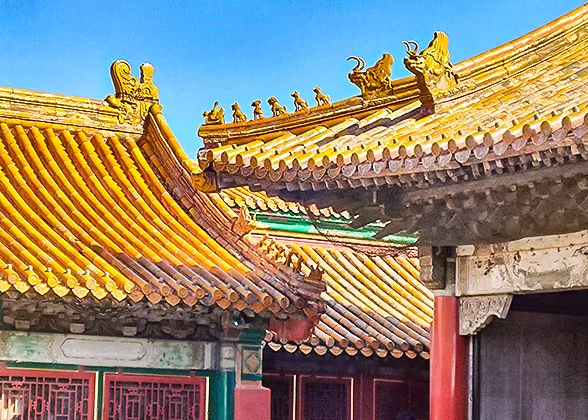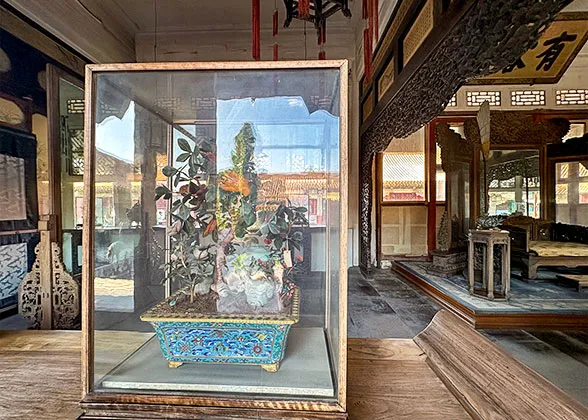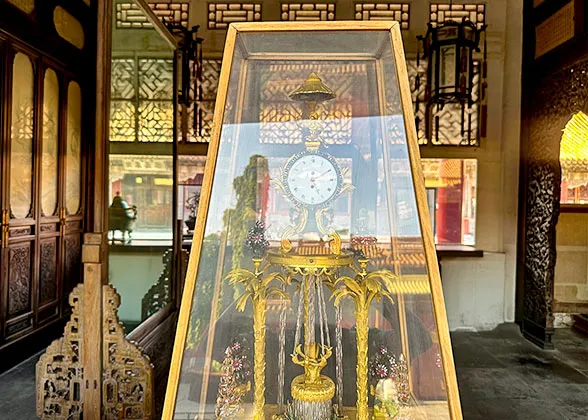Palace of Earthly Honor (Yikungong)
The Palace of Earthly Honor (Yikungong), one of the Six Western Palaces in the inner court of the Forbidden City, was once home to imperial concubines during the Ming and Qing dynasties from 1420 to 1911. In 1872, to celebrate Empress Dowager Cixi (1835~1908)'s 50th birthday and prepare for her return to the Palace of Gathered Elegance, the two palaces were connected and decorated in a lavish style. Today, visitors can see it being restored to post-1872 state and find the traces of court life.
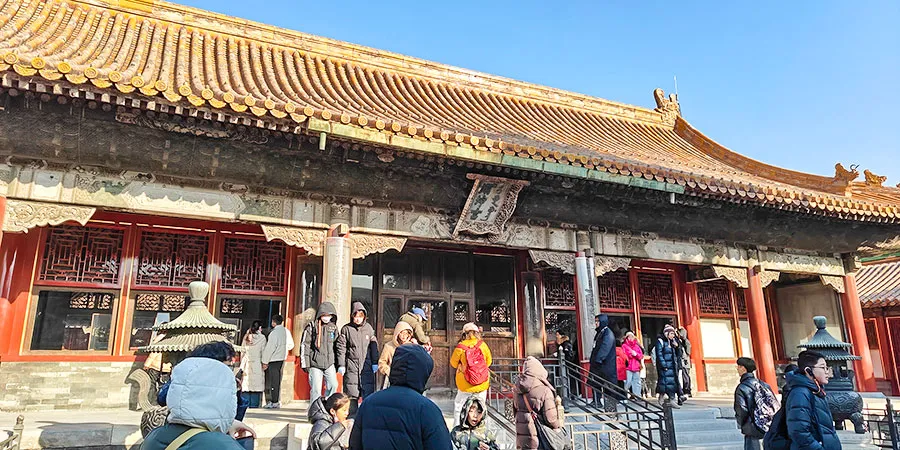 |
| Palace of Earthly Honor of Forbidden City |
Upon Entering: The Largest Screen Gate of the Inner Court
Step inside, and you'll be welcomed by a screen wall gate – the biggest among the inner court. It embodies ancient Chinese aesthetic of implicit beauty, hiding what lies beyond and adding a touch of mystery.
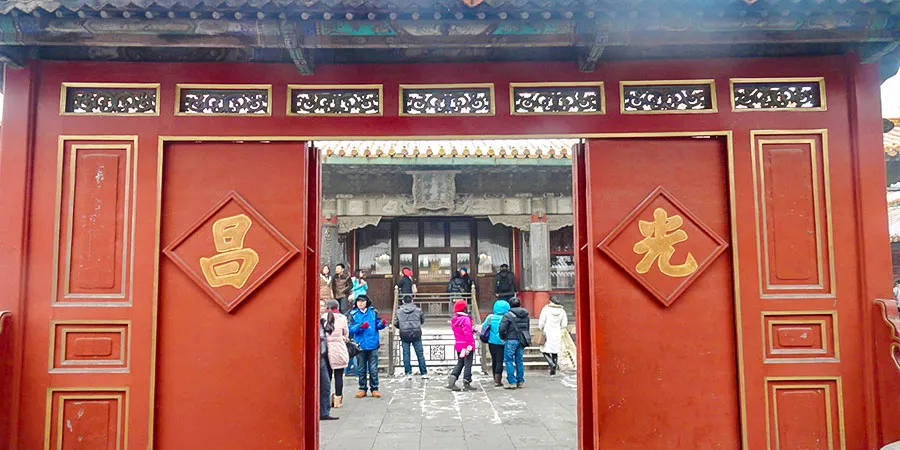 |
| Screen Gate of Earthly Honor Palace |
Main Hall: Palace of Earthly Honor – Restored Qing Concubine's Life
The main hall spans five rooms, with a throne, screen, incense burner table, and a large pair of feather fans in the central room. A plaque inscribed with Empress Dowager Cixi's calligraphy hangs on the wall, bearing the message that tolerance leads to success and virtue.
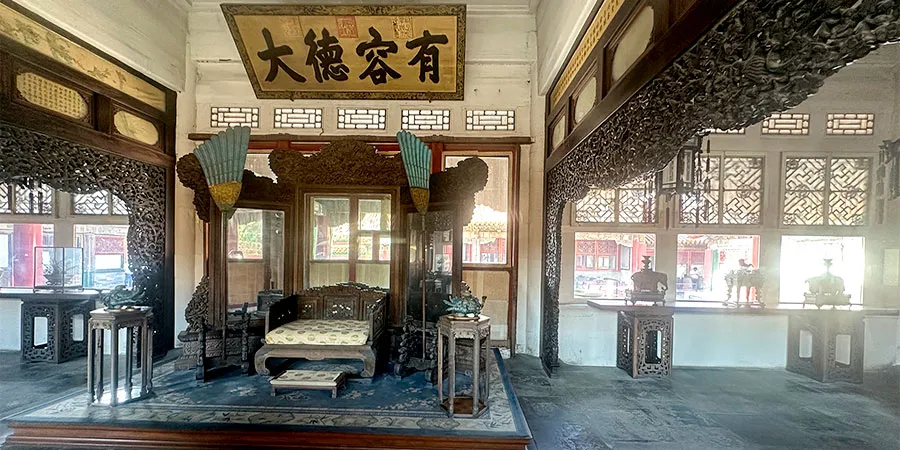 |
| Earthly Honor Palace Interior |
Rings of a Swing: A Subtle Trace of the Palace Life
Standing under the eaves of the main hall, you'll find two barely noticeable, rusty metal rings clinging to the beam, which were once part of a swing belonging to the last Emperor, Puyi (1906~1967).
After abdicating in 1912, Puyi resided in the Forbidden City's inner court and installed a swing in the Palace of Earthly Honor for some fun. His wife, Wanrong (1906~1946), who married him in 1922, also enjoyed a swing on it during their leisure time. These rings serve as a tiny, yet meaningful glimpse into their everyday lives.
After abdicating in 1912, Puyi resided in the Forbidden City's inner court and installed a swing in the Palace of Earthly Honor for some fun. His wife, Wanrong (1906~1946), who married him in 1922, also enjoyed a swing on it during their leisure time. These rings serve as a tiny, yet meaningful glimpse into their everyday lives.
|
|
Rear Hall: Hall of Well-being and Harmony – Cixi's Dining Venue
The Hall of Well-being and Harmony (Tihedian) was Empress Dowager Cixi's dining and banquet hall. It boasts five rooms, with the middle one as a passage. The eastern pair was where she had meals, while the western pair housed her tea room. Every item here, from fine tableware to delicate teacups and even the flowerpots, was all specially customized, mirroring her opulent tastes.
During festivals, the Hall was used for banquets. For instance, during the New Year, royal members would take turns to pay homage to Cixi with the prostration etiquette, presenting their greetings and wishes. Throughout the meals, the sound of firecrackers never ceased.
Servants' Fearful Life in the Hall of Well-being and Harmony
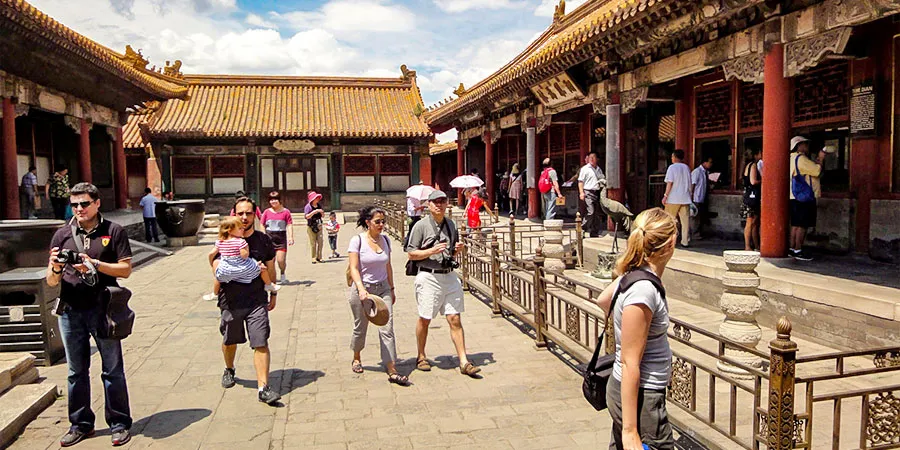 |
| Back Hall of Earthly Honor Palace |
For people who served there, the Hall was more a place of constant dread than glamour or grace. Any slip-up could mean severe punishment. Take a story cited from Rong’er, once Cixi's maid. Tasked with lighting up Cixi's pipe, she spent months perfecting the skills. One shivering move, one smoke spark, and she faced beatings—or death.
Emperor Guangxu's Reluctant Consort Selection in the Hall
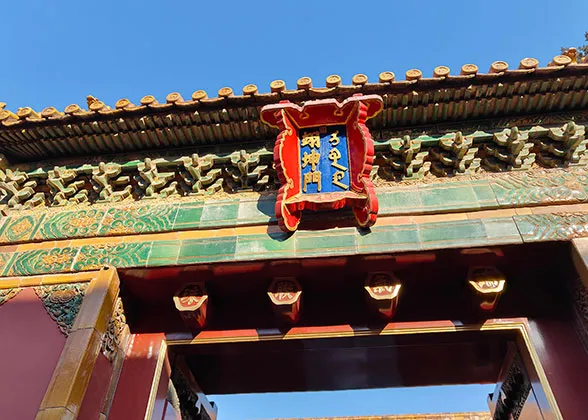 |
| Gate of Earthly Honor |
In 1887, 17-year-old Emperor Guangxu (1871~1908) was to get married, signaling a shift in power from Empress Dowager Cixi. To retain control, Cixi meant to make her niece as the empress and arranged the consort selection in the Hall of Well-being and Harmony.
Seated on the throne, Cixi instructed Guangxu to choose his empress and concubines. Guangxu knew he couldn't defy Cixi's wishes and hesitated. But Cixi said, "Select freely", as if she was truly open-minded.
However, as Guangxu approached the girl he wished to make empress, Cixi winked at him to coerce him into selecting her niece instead, making Guangxu have no choice but to reluctantly follow her command.
Three Legendary Women of the Palace of Earthly Honor
Ambitious Noble Consort Zheng
Noble Consort Zheng (1568~1630), renowned for her beauty and wit, held the exclusive favor of Emperor Wanli (1563~1620) for more than two decades and resided in the Palace of Earthly Honor.
Beyond the emperor's affection, she also aspired to wield power, aiming to replace the crown prince with her own son. However, her wishes were not granted.
After Emperor Wanli's passing, the crown prince, who had long been her rival, ascended the throne as Emperor Taichang (1582~1620). But his reign was cut short when he suddenly passed away under mystery. It rumored that Taichang was poisoned by the red pills that Noble Consort Zheng had gifted to him.
Then, with the ascension of the next emperor, the 15-year-old Tianqi (1605~1627), Zheng saw another opportunity to seize power. She plotted to wield control over the empire, exploiting the emperor's youth and inexperience. But fortunately, her schemes were thwarted by vigilant ministers.
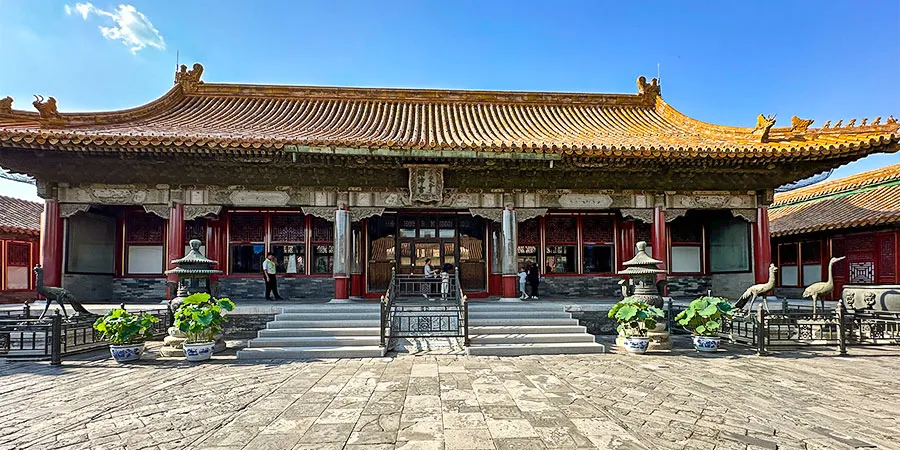 |
| Palace of the Earthly Honor |
Miraculously Surviving Noble Consort Yuan
In 1644, as the Ming Dynasty crumbled, Emperor Chongzhen (1611~1644) ordered Noble Consort Yuan (?~1654) to take her own life. Obediently, Yuan, who lived in the Palace of Earthly Honor, returned to her residence and attempted to hang herself. But fate had other plans: the rope broke, causing her to fall to the ground in a swoon.
Upon witnessing her still breathing, Chongzhen drew his sword and struck her shoulder. Yuan collapsed into a pool of her own blood, and assuming she was dead, Chongzhen ceased his attack.
Miraculously, Yuan was later rescued and revived, becoming one of the few Ming Dynasty (1368~1644) concubines to survive into the Qing Dynasty (1644~1911).
|
|
The Empress Who Dared to Curse the Emperor, Empress Nala
Empress Nala (1718~1766), once beloved by Emperor Qianlong (1711-1799), rose through the ranks to the prestigious Empress. However, during a southern tour, she was secretly deposed by Qianlong and imprisoned in the rear hall of the Palace of Earthly Honor.
As Qianlong claimed, Empress Nala had gone mad, cutting her hair and cursing him—an act forbidden in Manchu tradition, reserved only for widows mourning their husbands. Following this, Qianlong destroyed all portraits of Nala and even refused to hold a funeral for her after her death.
The reasons behind Nala's fall from grace vary widely. Some say she angered the emperor by advising against taking a southern prostitute as a concubine, fearing it would tarnish the royal dignity.
Others whisper that, as Empress, Nala sought to have her son crowned Crown Prince, a request in line with court tradition. Yet Qianlong had already chosen Noble Consort Ling's (1727~1775) son as the heir and planned to elevate Ling to Empress. Nala's proposal clashed with the emperor's wishes, leading to her deposition.
Damage in 2013
|
|
Visitors strolling through the main hall's corridors today can admire intricate clocks and jeweled bonsai from the glass windows. But once, this scene was interrupted unexpectedly.
At 11:10 am on May 4, 2013, a man smashed a window glass with his hands, causing a cultural relic clock to fall and be damaged. In response, the Forbidden City has implemented various measures like upgrading the windows with stronger glass to better safeguard the treasures, all with the aim of ensuring visitors have a safe and enjoyable journey.
See more Six Western Palaces
- Last updated on Sep. 29, 2025 by Jally Zhang -
